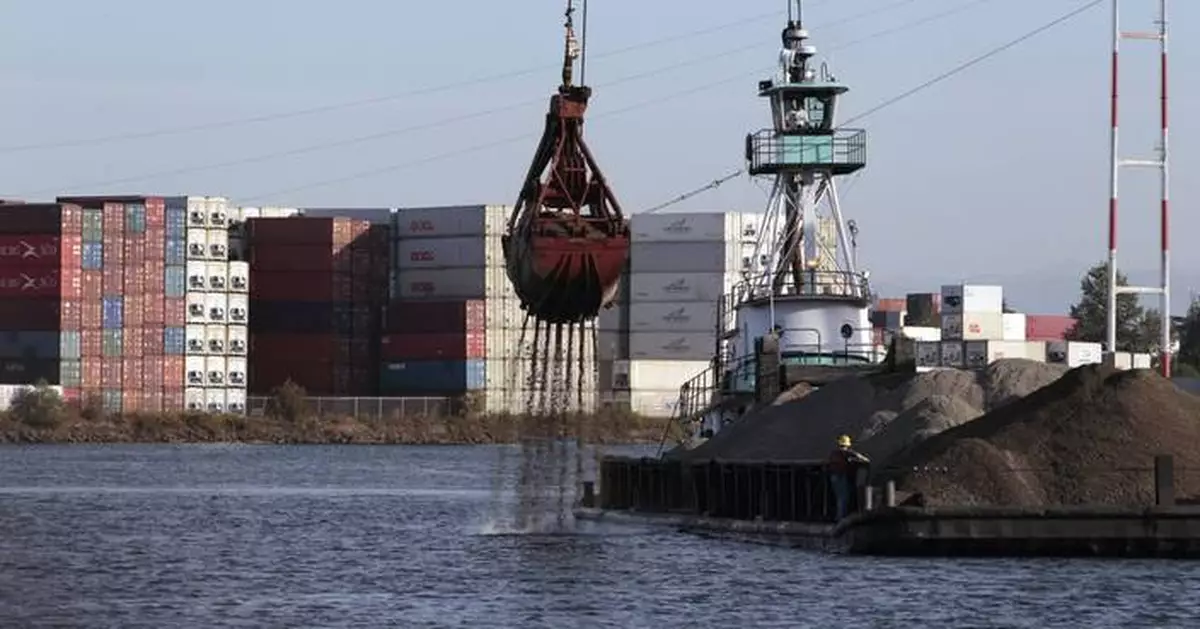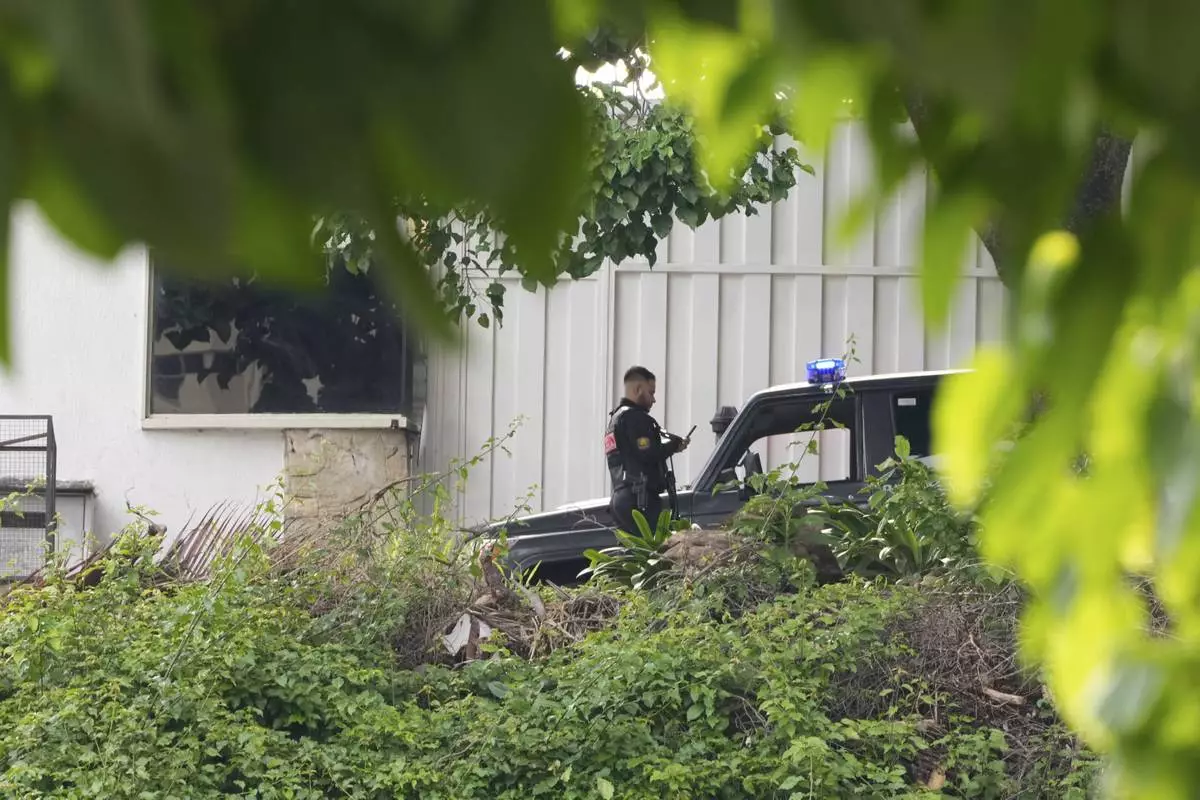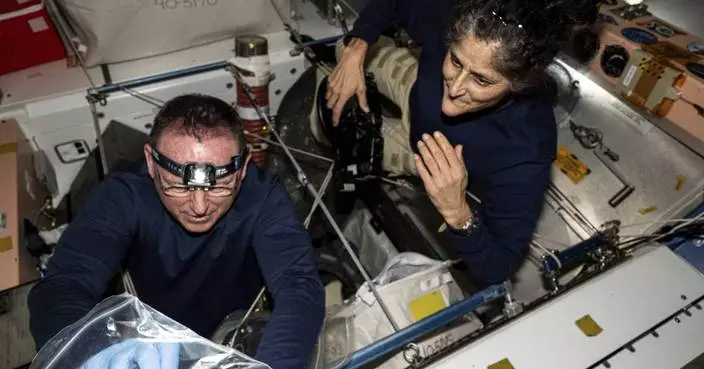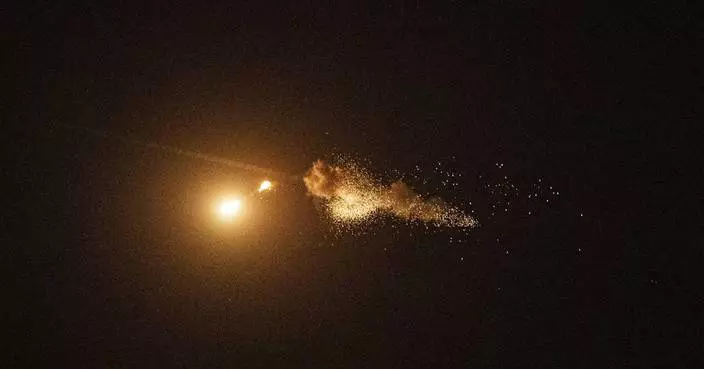SEATTLE (AP) — Ending an eight-year legal battle, chemical giant Monsanto has agreed to a $160-million settlement with Seattle for its part in polluting a river that runs through the heart of the city with toxins that posed a threat to humans, fish and wildlife, the city attorney's office said Thursday.
“We all play a role in protecting our environment and I am glad that Monsanto will contribute to this important environmental cleanup," City Attorney Ann Davison said in a news release. It's the largest single-city settlement Monsanto has paid, she said.
The Duwamish River cuts through Seattle, emptying into Puget Sound just south of downtown. Water samples collected from the Lower Duwamish detected polychlorinated biphenyls, or PCBs, which are man-made chemical compounds that were manufactured by Monsanto, according to the city's lawsuit.
Although Monsanto stopped manufacturing PCBs in 1977, the chemicals continued to exist in paints, caulking and sealants on buildings, Davison said. As a result, stormwater flowing into the Lower Duwamish River has been continually contaminated with PCBs.
Seattle sued Monsanto in 2016, saying the company “was well aware” that PCBs were toxic to animals, fish and the environment, but it continued to manufacture its products.
“While the scientific community and Monsanto knew that PCBs were toxic and becoming a global contaminant, Monsanto repeatedly misrepresented these facts, telling governmental entities the exact opposite — that the compounds were not toxic and that the company would not expect to find PCBs in the environment in a widespread manner,” Seattle's lawsuit said.
Under the settlement, Monsanto did not admit to any wrongdoing, fault or violation of the law. The settlement requires the company to pay Seattle $160 million by Aug. 4.
Monsanto said in an email early Friday that $35 million of the settlement will go to PCB remediation and $125 million will go to “unique claims” related to the Seattle case.
The company “remains committed to defending cases at trial and will only consider settlements when it is in the Company’s interest to do so,” the statement read.
Under a consent decree issued by the Environmental Protection Agency and the Washington Department of Ecology, the city was required to construct a stormwater treatment plant along the river to remove PCBs. The cost was estimated to be about $27 million.
The river is listed as a Superfund Site and in 2014, the EPA estimated the total cost of cleaning it up would be $342 million, the lawsuit said. The city is responsible for most of the costs.
The case was scheduled to go to trial in September, but the city participated in a mediation that let to an unprecedented settlement amount, Davison said.
The funds will allow Seattle Public Utilities to take further steps to protect the Duwamish, which could include expanding the agency's program that identifies sources of pollution, Davison said.
“The settlement money will help care for the Lower Duwamish and mitigate the cost of pollution control to find and remove PCBs,” Davison said.
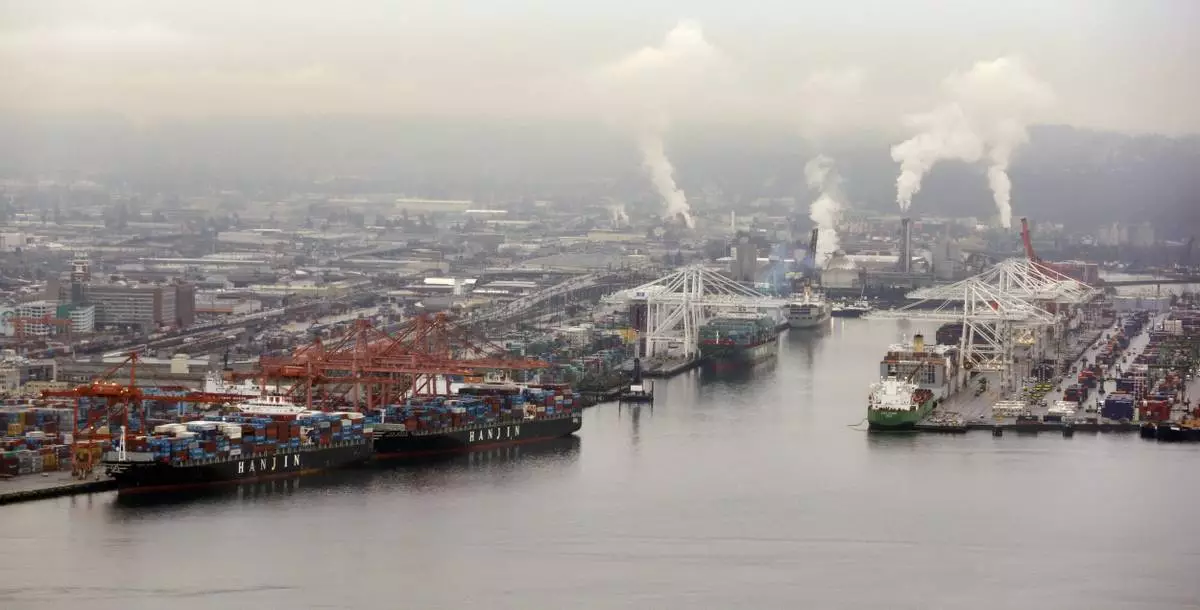
FILE - Container ships are docked at the Port of Seattle along the Duwamish River, Feb. 4, 2015, in Seattle. Ending an eight-year legal battle, chemical giant Monsanto has agreed to a $160-million settlement with Seattle for its part in polluting the Lower Duwamish River with toxins that posed a threat to humans and wildlife, the city attorney's office said in a press release Thursday, July 25, 2024. (AP Photo/Elaine Thompson, File)
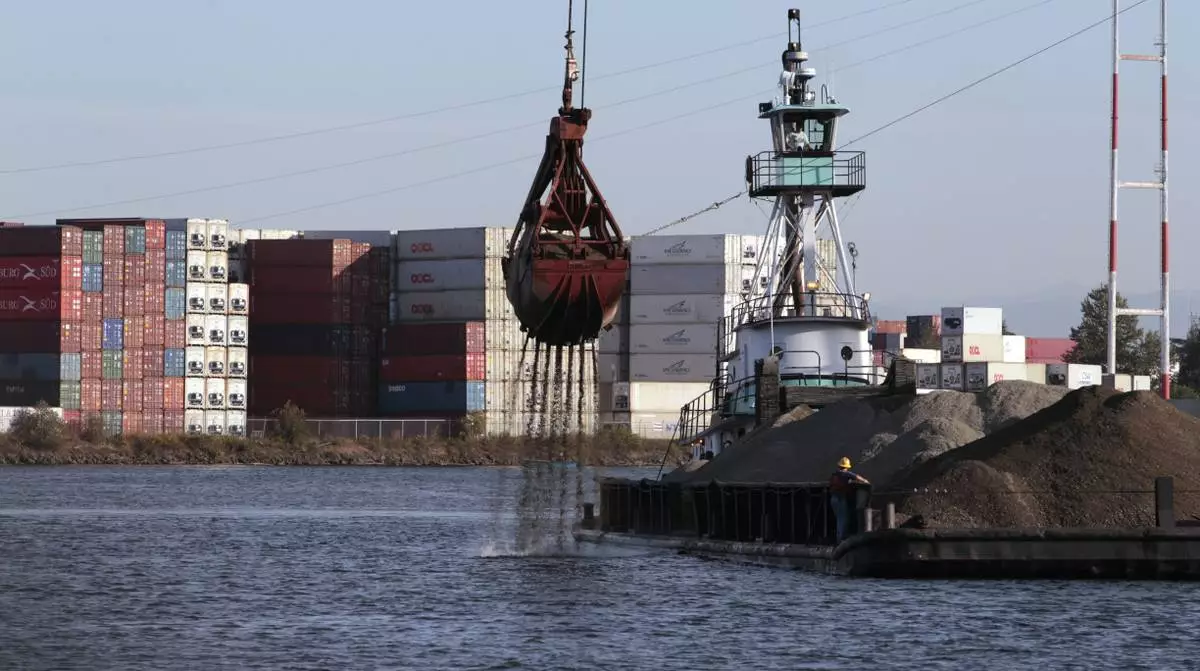
FILE - Shipping containers line one side of the Duwamish River and barges with gravel line another, Sept. 28, 2011, in Seattle. Ending an eight-year legal battle, chemical giant Monsanto has agreed to a $160-million settlement with Seattle for its part in polluting the Lower Duwamish River with toxins that posed a threat to humans and wildlife, the city attorney's office said in a press release Thursday, July 25, 2024. (AP Photo/Elaine Thompson, File)


